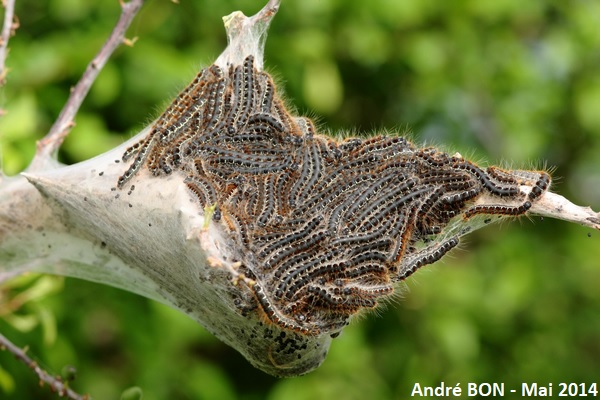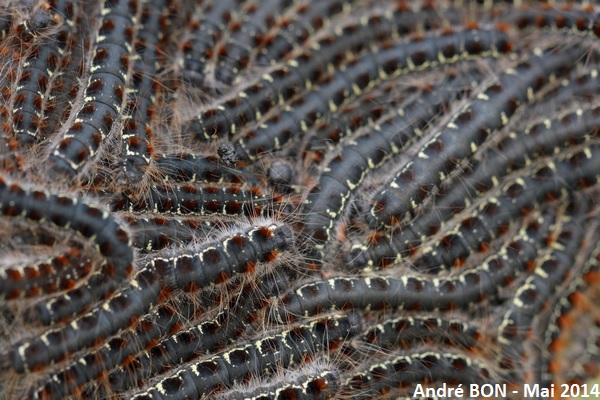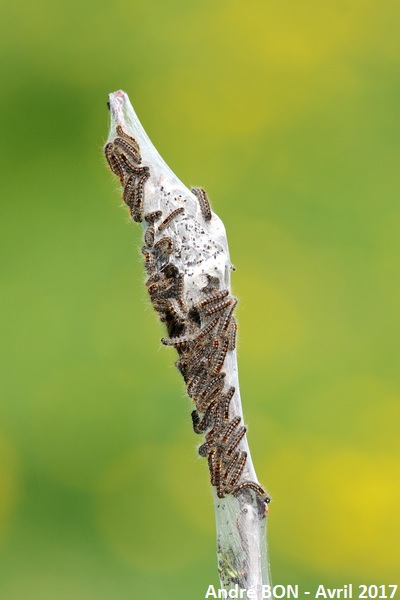



| Small Eggar (Eriogaster lanestris (Linnaeus, 1758)) |




|
|
Scientific name: Eriogaster lanestris (Linnaeus, 1758) Common name: Small Eggar French name: Laineuse du cerisier, Bombyx laineux. Order: Lepidoptera Suborder: Heterocera Family: Lasiocampidae Subfamily: Lasiocampinae Wingspan: 30-40 mm, females are slightly larger than males. Biotope: Bocage, hedgerows, orchards, parks and gardens, sparse woodlands, woodland edges. Geographic area: Europe, North Africa, Asia east to the Amur river. Missing in the more northern regions. Flight time: February to May. Number of generations : 1 Caterpillar: The caterpillars grow in community in a silken pouch of about 30cm. They are black with long whitish hairs, tufts of orange reddish hairs on the upper side of each segment and white dots and streaks on the lateral sides. Host plant: Common Hawthorn (Crataegus monogyna), Blackthorn (Prunus spinosa), Rowan (Sorbus aucuparia), Goat Willow (Salix caprea), European White Birch (Betula pendula) and many other deciduous trees and shrubs. |
The Small Eggar shows greyish brown to reddish brown wings. Males are often darker than females. The wings are crossed by a thin and light-coloured wavy line. They also bear a light-coloured median spot. These moths do not feed and they life is relatively short. The female's abdomen bears an anal tuft of greyish hairs. These hairs detach and they are used to protect the eggs. Males have feathery antennae, females have thread-like antennae. Small Eggars over winter as pupa in the soil. Most of the moths will emerge the following year but some of them will wait two years or more. |
| [To know more about the Small Eggar] [Next picture] [Top] |

|
Here is the common silky pouch where the caterpillars grow up to their last development stage. It is much more easy to observe the caterpillars than the imagos which have a very short life. |
| [To know more about the Small Eggar] [Next picture] [Previous picture] [Top] |

|
Caterpillars stay in community during the day and disperse during the night to feed. |
| [To know more about the Small Eggar] [Next picture] [Previous picture] [Top] |

|
Caterpillars go thru 5 development stages. The orange reddish tufts of hairs appear since stage 4. |
| [To know more about the Small Eggar] [Previous picture] [Top] |

|
These colonies of caterpillars are really easy to notice. |